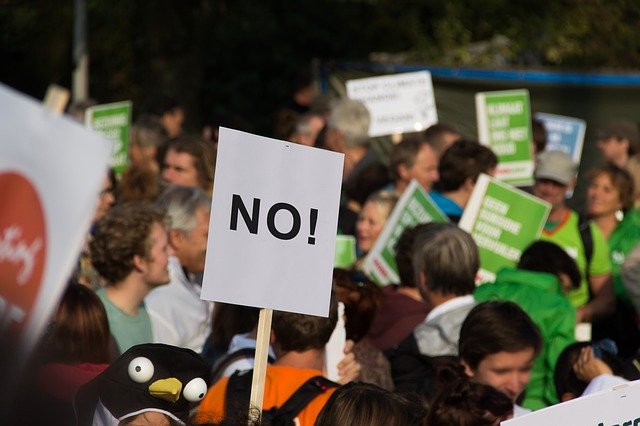Five Parenting Values Desperately Needed in Politics
Parenting and Politicians
As a parent, I’ve wanted to put politicians and political pundits in time-out many times over the past few months. I watched a video this morning where a popular t.v. pundit whined about how “those people” and “that party” were going to destroy the fabric of our nation. It made me angry but I couldn’t quite figure out why.
A few minutes later one of my kids asked his brother to stop singing. The singing purposefully continued despite multiple requests to cease. When I intervened and asked the singing brother to go to his room for a few minutes, he protested and couldn’t understand what he did wrong. As I explained how innocent intent is not always the same as perception it hit me- politicians and other people discussing politics are completely missing a few key values commonly understood by parents all over the world.
Therefore, I’d like to share five parenting values desperately needed in political discourse.
1. You’re not as right as you think you are
It’s so easy for kids to think they’re innocent victims. We’ve all heard the story- they were sitting and doing “absolutely nothing” when out of nowhere an evil sibling swooped in and stole their toy or hit them or started to cry. As a parent we know, the story is always a little more complicated than what’s initially presented. Both parties usually have a role to play in the resulting argument. We sometimes even require our kids to sit down and talk through what happened and why each one reacted the way they did. We hope they’ll listen and learn that their own behavior contributed to the circumstance leading to any fight.
Why can’t we learn this in politics? Your party or political position is not as right as you think it is. The policies we care about are not as black and white as we think they are. If an argument over “he stole my toy” does not have a simple and clear solution, why would we think a national policy addressing poverty or healthy should.

2. No name-calling
The other day one of my kids called his younger brother a “noob” while playing video games. This insinuates that he’s new and not very good at playing the game. My older son got in big trouble because name-calling is not appropriate in our household. We demand that our children treat each other with respect, even when they’re upset. We explain that words are powerful and can “cut like a knife”.
Why do we allow politicians and pundits to verbally deride their opponents like spoiled children? When watching political discourse I feel like I’m just waiting for a grown man to refer to his political opponent as a “dummy pee pee head”, the ultimate kid insult. We don’t allow this behavior in our kids, so why do we allow it or even defend it in our politicians?
3. It’s not all about you
Oh, how many problems in the world would be solved if we all truly believed the world did not revolve around us! As parents we try to instill this value in our children. Yes, child, you may want a cookie right now but I am doing the dishes so you’ll have to wait. Yes, you may want to play video games all by yourself. However, you have a sibling and must therefore share your game time. We hope our children will understand that there are other people in the world besides them and those people matter.
Politics tends to be a game of self-interest. It’s all about building enough credibility for re-election. People on t.v. follow along and do everything in their power to get “their people” re-elected. But what if we truly believed there was something bigger at stake than the next election? What if we looked beyond one party or platform and put our politicians in their place. This is probably one of the hardest lessons for humans to learn, but also one of the most important.
4. Behavior/words that are hurtful to others should stop, even if your intent is innocent
I explained how my son was annoying his brother by whistling this morning. If he replied to my request to stop by saying, “This is America, I can do what I want. My brother should stop being so offended by everything and suck it up. Why should I worry about his feelings- what’s next, you’re going to tell me I’m never allowed to sing again and control every word I say like a robot?” I promise you this response would have resulted in a swift response with a severely shortened lifespan.
I feel like we’re always explaining to our kids that they may not intend for something to sound mean, but that doesn’t mean that it’s not perceived to be mean. Out of general care for other people if something is annoying or hurtful to those around us we should try to stop or accommodate their request if possible. In order to “be nice” we must not do things perceived to be “un-nice” by those around us.
This does not mean every request is valid. When one of my kids lay across the entire couch and is then annoyed that his brother is attempting to take up a few inches- we make sure the lounging child knows that his behavior is a part of the problem.
To be honest, this point is probably larger than this post. I understand applying this simple concept to politics feels messy. But, what would happen if we tried harder to listen to other people before determining that they were “just being too sensitive”? Just because we do not experience a thing does not mean that thing doesn’t exist or isn’t important. We must train ourselves to listen to the experience of others and try to stop doing things that hurt them.
5. When you don’t get what you want, don’t have a fit
My wife and I tell our kids no all the time. We want to make sure they understand that they can’t get everything they want in life. But when we do settle on a firm no to something they want, they are not allowed to have a fit about our answer. Having a fit may result in some sort of punishment on top of what we declined to allow them to do.
I don’t like watching the most powerful politicians in our proud nation have a fit on t.v. and Twitter every day. I want to sit them down and let them know that sometimes the answer’s, “no”. Sometimes you lose and sometimes you say or do something that’s just plain wrong.

Putting it all together
I want this post to be about politics. I wanted to specify everything that makes me angry about those politicians and pundits. However, I realize that’s not what this post is really about. It’s about me. I struggle with these things in my own life. These are probably five of the hardest lessons we all need to learn. We begin teaching them to our children soon after birth because there’s something innate in us that wants the world to revolve around us and our preferences.
I do think we should demand more from our politicians and political pundits. I am tired of accepting, “I know you are but what am I,” and, “No! YOU are a dummy dumb face” as normal politics. But I should begin by demanding more of myself. I should begin with me. Then, let’s begin demanding more of our politicians. Otherwise, they should go to their rooms and think about what they’ve done. They can come out when they’re ready to apologize for their behavior.
